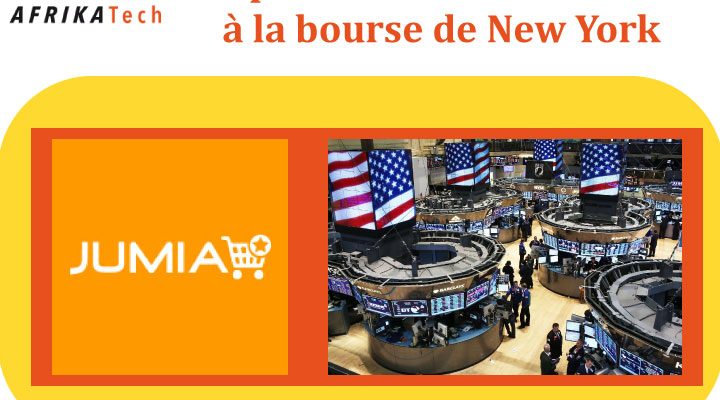Small history
Jumia: How is the e-commerce business doing? Founded in 2012, based in Dubai, Jumia is touted as one of the 3 African unicorns, and number one in e-commerce. Until its IPO, it had only raised $ 824 million in 5 funding rounds according to Crunchbase. The capital was shared between its original incubator, Rocket Internet (21%), Mtn (30%), Millicom (9.6%), Axa (6%), Orange (6%), Pernod-Ricard (5% ), Banks and investment funds including Goldman Sachs.
Established in 14 African countries, with more than 80,000 active sellers, employers of 5,000 employees, for approximately 4 million customers in 2018.
JUMIA 《African Alibaba》 and its IPO
Hoping to rake in $ 200 million up front, it will barely put 13.5 million titles up for sale on the market between $ 13 to $ 16 per share, when the price has already climbed 30%. They finally stabilized at $ 25.45, an increase of 75.59% over the entry price.
Successful bet for the start-up because valued at nearly $ 1.9 billion. Very honorable entry for the start-up into the American stock exchange, the largest in the world. April 12 will remain the date engraved in golden letters in the annals of the Pan-African platform:
“This historic moment was made possible thanks to the hard work of our teams, the confidence of our consumers and the commitment of our salespeople and partners” – comments from the co-founders and co-directors.
Evolving sales performances from year to year were compelling arguments as a ticket to the NYSE. With 828 million turnover in 2018, for an increase of 68% in one year.
Current realities: after going public, JUMIA faces headwinds
If the main concern is to reassure its investors, the figures show that the stock has lost 24% of its value and is now trading around 11 dollars. However, according to top management, the analysis of Jumia share prices will not be done in the first few months, but over the long term. Citing here the Argentine example Mercadolibre present throughout Latin America recording at the time (2007), an IPO of 20 to 70 dollars, then fell to 9 dollars in less than a year, but which would be worth our days more than 500 dollars.
The near-perfect share price romance Jumia was to tumble after the attack on speculator Andrew Edward Left. Qualifying I quote the data previously presented to institutional investors as sham and would have even hidden some important information. Consequence: American law firms have reportedly encouraged investors to take part in class actions, a procedure still in its infancy today.
Crimes discovered
Thousands of volunteers placing orders for third parties for commissions constituting the JForce program have revealed fraud. Nevertheless, the channel having been cleaned of its bad seed will remain important in the search for new customers.
From 76.4 to 113.6 million USD
113.6 represents all losses in the second quarter of 2019, compared to 76.4 for the whole of 2018. There is nothing here to show that the start-up is approaching breakeven point. With some lights in the green, however, analysts seem optimistic for the future.
Carrier model?
This “new way of doing business” is not yet part of consumer customs. Because, e-commerce only represents 1% of sales in Africa, 2.4% in Latin America and 10% in the United States. But, a survey of the major markets suffices to show that people are willing to use Jumia for purchases and services. The hope also remains at the level of the realization of the first benefits in the medium term.
Growing turnover without any profitability
By focusing on economies of scale and monetization of services with JumiaPay, development axes are being established. Profit margins, however, remain almost non-existent.
Cancellation before delivery of orders
It is not easy to recover the costs incurred when payments are made on delivery. The admission of prepayment might turn things around.
Concerned investors
First shareholder, MTN had mentioned its intention to sell some of its shares. In October 2019 all the same, the possibility was offered to shareholders wishing to do so, to sell their shares.
A bad for a good ?
Online sales under the Orange brand have not flourished as expected. In addition, the JumiaPay service turns out to be a direct competitor to the Orange Money service. The reduction in MTN’s stake would not turn out to be a good omen.
Rapid growth and real possibilities for success
The ability to achieve a relevant strategy within several countries, rapid growth, quality teams, also a continent free of competitors are arguments that have won over investors. The partnership with multinationals such as L’Oréal, Samsung and the logistics fabric made up of warehouses, fleets and independents enrich the Jumia offer.
Observers simply need to be on the lookout for the development of the company, whose sometimes resounding history does not seem to be about to end.


Leave a Reply